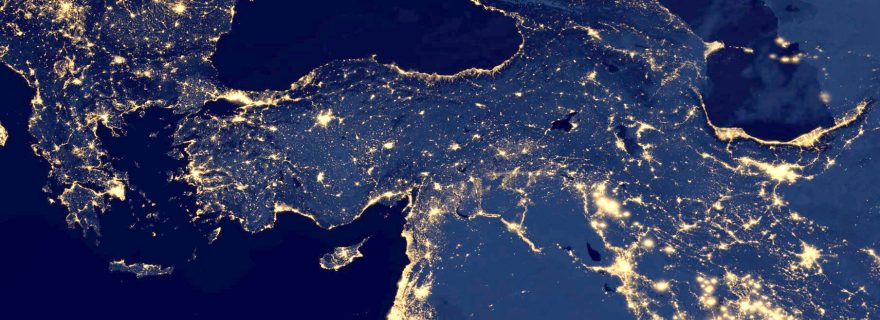United in Polarization: Turkey in Times of Corona
Even in the face of a pandemic, Turkey is seemingly unable to ensure cooperation between the government, opposition, and civil society, defeating the very purpose of the official discourse stressing unity and solidarity.
In January 2020, the Turkish government started to take measures to prevent the spread of COVID-19 in Turkey. At the outset, the measures were limited to screenings at the airports via thermal cameras, to identify and quarantine the possibly infected passengers. In early February, the government imposed a travel ban to and from China. Similar to many other countries, such measures initially focused on China and were deemed “temporary.” After the rapid spread of the virus, however, Turkey closed the borders with Iran and Iraq in late February and halted flights to many European countries in mid-March. On 27 March, the government stopped international flights entirely.
The first case of coronavirus was reported on 11 March: the patient was Turkish and contracted coronavirus while travelling in Europe. After a few days, more than 10,000 Turkish citizens returned home from Mecca, Saudi Arabia, where the Muslims from around the world perform the Umrah pilgrimage. In addition to the people infected with the virus in Europe, the authorities admitted that the pilgrims had played a role in passing the virus on to other residents in Turkey, in spite of efforts to quarantine them. Yet, the official discourse focused the blame on Europe as the source of contagion for Turkey rather than Iran, Iraq, or Saudi Arabia.
At the time of writing (23 April), 98,674 people out of 750,944 tested positive for COVID-19. On 22 April, the death toll reached 2,376, with 1,814 in the intensive care. The number of infections is reportedly above the figures in the worst-hit countries such as China and Iran, whereas the confirmed number of deaths is much lower, resulting in a lack of confidence in the information made available by the Ministry of Health. These suspicions are articulated by the spokespersons of the opposition parties as well as by the Turkish Medical Association (Türk Tabipleri Birliği). They also underscore the deficiency of the medical equipment and intensive care capacity, in sharp contrast to government claims.
After 11 March, the government took increasingly drastic measures, which had a huge impact on everyday life. In late March, a curfew for people over 65 or chronically ill was declared. From 3 April on, people under 20 were also obliged to stay home. Finally, a total curfew for the weekend was announced for 31 cities, via the state news agency “Anadolu Ajansı” late on Friday night, 10 April. This caused mayhem, as the people afraid of a much longer curfew formed long queues and large crowds in front of the shops to stock up on food and water, mostly disregarding the social distancing rules imposed to prevent the further spread of the virus. Heavy criticism of the way the curfew was handled prompted the resignation of the Minister of Interior Süleyman Soylu, who took responsibility for this situation. President Recep Tayyip Erdoğan rejected his resignation, however, and later on declared that the weekend curfews were to continue until further notice.
In addition to the curfews, the government took measures to restrict the mobility of the people within Turkey. In late March, they prohibited outdoors activities entirely, because the population did not seem to comply fully with the social distancing measures. Moreover, permission from the governors was required for intercity travel. After a few days, this restriction became more extensive, as the entry to the thirty metropolitan cities and Zonguldak was “temporarily” forbidden.
Even before the outbreak of the pandemic, the Turkish economy was in a precarious situation. At the moment, the government insists on a partial lockdown and curfews tailored to keep the economy running, a policy highly criticized by the opposition mayor of Istanbul, Ekrem İmamoğlu and the Turkish Medical Association. In view of the compelling need for funding, the president initiated a donation campaign on 30 March to finance the struggle against the pandemic, under the banner of “We are enough for each other, my Turkey” (Biz Bize Yeteriz Türkiyem). This statement upholding self-sufficiency aims to demonstrate that Turkey is capable of fending off the pandemic without the support of any other country or IMF credit.
Because of the distrust in the government, municipalities controlled by the opposition initiated their own donation campaigns. These were quickly suppressed, as the government blocked their bank accounts and put these campaigns under investigation. Similarly, other initiatives taken by the opposition municipalities, such as a soup kitchen, field hospital, and distributing bread to the people in need, were condemned vehemently as “parallel state” activities.
Finally, on 13 April the government granted amnesty to approximately 90,000 inmates in order to curtail COVID-19 in the prison population. These notably excluded its opponents and critics, including journalists, activists, and politicians serving time on terrorism charges. Instead, more people now face similar charges, even for social media posts on COVID-19 that do not comply with the information disseminated by the government.
The outbreak of the coronavirus did not put an end to the polarization in the Turkish politics and society, but instead highlighted existing fault lines. Even in the face of a pandemic, Turkey is seemingly unable to ensure cooperation between the government, opposition, and civil society, defeating the very purpose of the official discourse stressing unity and solidarity.



0 Comments